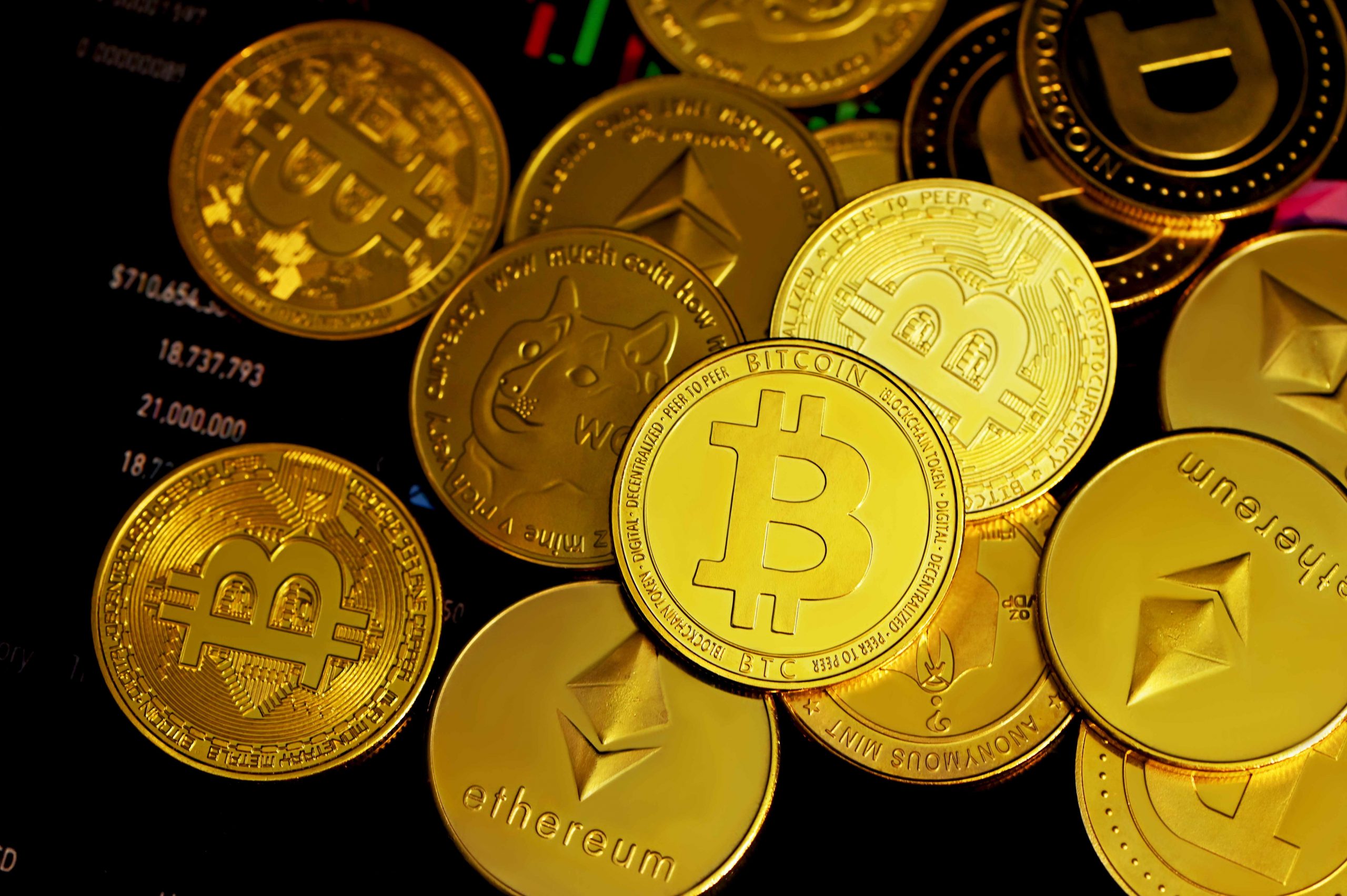Imagine you have a coin that only you can use because you are the sole and rightful owner. Cool, isn’t it? And what’s even better is that the encryption in the coin is difficult to hack or decode until and unless a special key is provided.
Well, that’s what it means to own a cryptocurrency!
What Is A Cryptocurrency?
Essentially, the definition of cryptocurrency is as follows:
“a digital currency in which transactions are verified and records maintained by a decentralized system using cryptography, rather than by a centralized authority.”
Basically, it’s a virtual currency that you cannot touch or store in your wallet. It is secure in a digital (wallet) account, and the account is in association with a decentral system. The bank or government doesn’t have access.

An anonymous third party would verify the transaction and publish the record to the digital ledger. This digital ledger is the blockchain technology that we are widely aware of.
One can avail of the coin by buying them at a decentralized exchange or operating a blockchain. Yup! You can get cryptocurrencies just for validating transactions or mining the encryption.
The Encryption Of The Currency
Now, one must get this clear. The encryption to adorn the ‘cryptic’ feature is not essentially present on the coin or the currency directly.
The digital currency, when transferred to a receiver, relays a message to the blockchain (the digital ledger). The messages get encrypted.
In addition, the block containing the message contains the encryption of the previous block on the message. So, it basically links the previous block containing the message and the current block containing the message. Making a network of blocks that are together.
These encrypted messages are validated by third-party decentralized nodes amidst the network.
Moreover, the encryption functions such that it needs the sender’s public key, the receiver’s public key, and the receiver’s private key to decode the encryption completely.
Advantages of Cryptocurrency
The first advantage is the reason for its existence. Encryption and Security. But, let’s look at the other advantages of this wonderful invention.
Inflation Insurance
Traditional currency often visits a trend of downfalls and the rise of market value. This in turn provides financial insecurities to those working hard to save and send money home.
However, with a limited number of cryptocurrencies being sold and minted, the value of a limited possession is always bound to rise.
Honestly, it just follows a simple economic theory of Demand and Supply. Thus keeping investors away from inflation.
Autonomic Management
The cryptocurrency floats in a network that functions in an automated manner. Well, let’s be a little honest here… nodes who work to validate blocks and mine the hashes are getting paid to do so.
In due course of transactions, the transaction fee or the gas fee collected, in turn, rewards the miners, stakers, and validators for their work.
Consequently, the management of the network is smooth and autonomous. It doesn’t get micromanaged by anyone else.
Privacy and Security
Privacy and Security place an important role in the infrastructure for a blockchain handling cryptocurrencies.

The encryption on the blockchain is secure in many ways. The most common method of encrypting is hashing and the common hash encryption employed is SHA-256 encryption.
These encryptions are difficult to crack and decode thus providing the much-needed security in a decentral environment. It also makes the transfers more secure compared to centralized institutions.
Decentralization
Decentralization is the core of virtual currencies and digital ledgers. It’s a system where everything is open and everyone equally agrees upon a transaction that occurs. The feature of decentralization also keeps away the monopoly away from the network.
This in turn ensures that the flow of digital coins is free and the value of the coin is not set by a single person or body of power.
Consequently, the value of the coin remains stable and secure amidst the exchange of currencies, unlike centralized money which changes value as per the market.
Fast and Cost-effective
Being digitally transferred through the internet and between two digital wallets, the transactions are as fast as internet speeds and faster if there is no transaction traffic.
Not to forget, the transactions are also fast due to the simplicity and quickness of validating the transactions. This holds true for domestic and international transfers of virtual currency.
Moreover, being present in a decentral ecosystem, the currencies are safe due to the abscence of middlemen who do not handle or monitor the transactions. This makes transfer cheaper due to the absence of middlemen menace and pay.
You only need to pay a little transaction fee for the validator who vets your block containing the transaction details.
Trivia
The Idea
The idea was first conceived by David Chaum, a cryptographer from the 1950s. He published a paper titled “Blind Signatures for Untraceable Payments” in 1983.
1st Cryptocurrency
The world’s first cryptocurrency was “e-Cash”; a product of ‘DigiCash’. And, to add the cherry on the cake, the owner of DigiCash is David Chaum.
Currencies before Bitcoin
Cryptocurrencies used to exist before Bitcoin and played a very important role in influencing the concept and birth of Bitcoin. Some of these coins are – eCash, B-Money, and BitGold to name a few.
The First Use of Cryptocurrency
Apparently, someone had paid about 10,000 BTC back in 2010 for 2 pizzas. In 2022 prices, that’s about $222 million.

